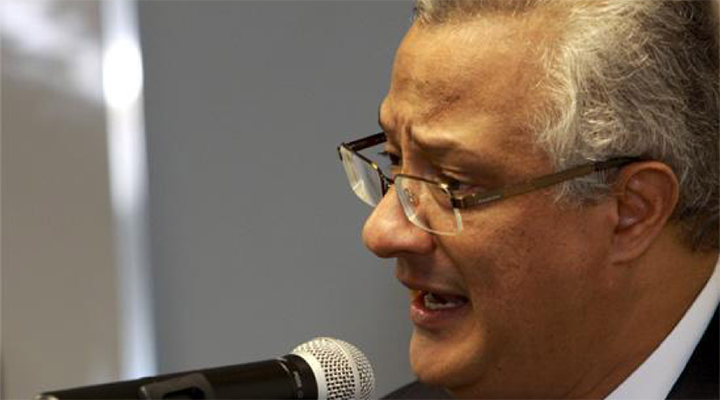Judge Marco Antonio Marques da Silva serves on the Court of Appeals in São Paulo, Brazil. Born in Itapetininga in 1958, he has enjoyed a long and decorated career in both the legal field as well as various posts throughout academia. In addition to his duties as a judge, he also serves as a professor at Pontifical Catholic University of São Paulo, the institution where he received his undergraduate degree, Masters in Law and Doctorate in Law. We recently sat down with Marco Antonio Marques da Silva to discuss topics ranging from an upcoming book on human rights to his opinions on how to build a successful career in such competitive fields.
How do you fill a typical day in your life?
I teach undergraduate and postgraduate classes at the Faculty of Law of PUC-SP, so that takes up a good portion of my time on a daily basis. I also serve as an advisor to masers and Ph.D. candidates. In that capacity, I help them publish work and conduct research. Beyond my academic pursuits, I serve as a judge for the Court of Justice for the State of São Paulo. A good portion of that time is spent hearing cases and preparing decisions. Typically my days are very full but I find all of that work to be intellectually stimulating and satisfying.
How do you take your ideas from conception to execution?
My work is the result of a wide range of collaborations with others. Since I travel a lot, often to various universities and other academic institutions, I find that I frequently have the opportunity to learn from the experience of others. It is through this constant openness to debate and learning that I’m able to formulate ideas and also spread them to others. But I don’t really think of the ideas as mine. Generally speaking, in life, I feel that though we give life to an idea, what we are really doing is adding it to a global network of knowledge. In much the same way that a tree grows a fruit and then sends it off into the world to be enjoyed.
Where did you find inspiration for your book?
I’ve been working on texts and academic conferences for a long time on the topic of a globalized society. So the ideas in this book naturally stem from that work, which I find to be a necessary next step in how we conduct ourselves.
Do you have a book recommendation for our readers?
“Book of Disquiet (Livro do Desassossego)” by Fernando Pessoa. It was published fifty years after the death of the author but it provides remarkable perspective on everyday life in the modern age.
Are there any emerging trends that interest or excite you?
The exchange of ideas between different disciplines is a big one for me. As the world grows more complex and the ideas we confront grow in complexity as well, we are increasingly needing to lean on the knowledge of people from a variety of specialties. This is a great trend as it promotes real diversity of thought throughout the academic process. This is the kind of work that will help us bring the benefit of modern science to real people such as vulnerable societies or families that have previously scratched out a very tenuous existence.
Do you have an opinion that others find controversial?
I think a lot of people like to use their money on things, like cars or clothes. I think it’s really best to use money for travel. Having a solid understanding of other cultures, people, places, cuisine, it’s really an invaluable resource in life. It’s also a better way to know oneself since we are constantly tested during travel and through those tests we find ourselves.
Can you name a habit that helps make you a progressive thinker?
Reading, without a doubt. I’m a voracious reader and will read anything from newspapers to books, to magazines. It’s the true source of knowledge. Additionally, I watch a lot of films, which can help expand one’s mind, and I go on a lot of trips, which can have a similar effect.
Any advice for your younger self?
Always keep the story of Saint Augustine in mind. That means work hard without giving up and always put faith in God.
What’s one piece of technology that helps you achieve your goals?
My netbook and iPad are really important to help me write down my ideas as they come to me. I also create a lot of Powerpoint presentations for lectures. Also productivity apps like Vademecum and Goodnotes.
Can you name a failure that you had in your career and how you overcame it?
Failure is always relative. What we may think of as a failure today we may come to realize was actually supposed to happen for a larger purpose tomorrow. Sometimes that’s hard to realize at the moment. I often say that God does not write in crooked lines, he writes in straight lines and we see them as crooked.
What’s something you recommend people do to further their professional aspirations?
Persistence and focus are key. Also setting goals. But always pursue your goals in a responsible manner.
What’s a strategy you’ve used to develop your career?
Always be studying and working. Also, surround yourself with people who share your commitment to hard work. If everyone around you is lazy, it can affect your work ethic.
What’s the best use of money you’ve recently spent?
I always value helping people with money over buying something. Maybe that’s sentimental but helping to relieve someone else’s suffering is such a key part of life. We all have to do our part.
Do you have a favorite quote?
“There are more tides than sailors.” It’s a Portuguese saying that is relevant when we think we’ve missed an opportunity. We may think hope is lost but there’s always hope that we do not realize at first, but we find eventually.

